
Artificial intelligence helps reduce 'communication gap' for nonverbal people
Researchers have used artificial intelligence to reduce the 'communication gap' for nonverbal people with motor disabilities who rely on computers to converse with others.
Tracing coronavirus habitats with genomics
Now, a new study by researchers at the University of Ottawa and published on the preprint server bioRxiv in June 2020 reports the differences in genomes of viruses that are exposed to antiviral proteins vs. those that are not. This host-derived pressure on the virus to adapt may help devise newer ways to build an effective vaccine.
Study reveals worrying trend of designer drug use in Australia
In a sign that designer drugs are becoming more prevalent in Australia, synthetic cathinones - commonly known as 'bath salts' - have been detected in the nation's wastewater in the largest study of its kind in the country.
Millimeter-thick cell-laden hydrogel fiber helps control blood glucose in diabetic mice
Type 1 diabetes mellitus results from an irreversible autoimmune destruction of insulin-producing pancreatic β-cells requiring life-long substitution of insulin.
Breakthrough drug significantly delays onset of type 1 diabetes, study finds
Emily Sims, M.D. today shared new findings that a breakthrough drug significantly delays the onset of type 1 diabetes (T1D).
Inhaled steroids reduce ACE2 expression in COPD lungs
A new study by scientists at Imperial College London, University of Newcastle and Prokarium, and published on the preprint server bioRxiv* in June 2020 examines the role played by inhaled corticosteroids (ICS) in the risk of acquisition of COVID-19 infection by COPD patients.
Study delves into causes of post-trauma nightmare occurrences
It's been estimated that up to 88% of survivors of rape or molestation suffer from persistent nightmares that can occur multiple times per week, seemingly at random.
Trio of studies identifies new human antibodies that target SARS-CoV-2 virus
A trio of papers describes several newly discovered human antibodies that target the SARS-CoV-2 virus, isolated from survivors of SARS-CoV-2 and SARS-CoV infection.
Genetic marker may predispose African Americans to cardiac complications from COVID-19
Nearly one out of every 10 African Americans has a genetic variant that puts them inherently at an increased risk for ventricular arrhythmias and sudden cardiac death.
U.S. and European SARS CoV-2 mutation enhances transmission, increases infectivity
The severe acute respiratory syndrome coronavirus 2 (SARS-CoV-2) that is causing the COVID-19 pandemic across the world has undergone a genetic mutation in the density of functional spikes on the virus, says a new study. This has led the virus to become highly infectious and easily transmissible between humans.
Researchers report the prevalence of COVID-19 infections in pregnant women
Universal testing of pregnant women admitted to labor and delivery units is part of a multipronged approach to reducing transmission of the virus that causes COVID-19 in hospitals and clinics.
Irregular circadian rhythm in older adults associated with increased risk of Parkinson's disease
Older men who have a weak or irregular circadian rhythm guiding their daily cycles of rest and activity are more likely to later develop Parkinson's disease, according to a new study by scientists at the UC San Francisco Weill Institute for Neurosciences who analyzed 11 years of data for nearly 3,000 independently living older men.
COVID-19 linked to drop in pediatric asthma emergency department utilization
The number of patients visiting the emergency department for asthma treatment dropped by 76% in the first month of the COVID-19 pandemic, according to a new study by researchers at Children's Hospital of Philadelphia.
Researchers examine how neurons represent the direction of a moving object during self-motion
Our brains use various reference frames--also known as coordinate systems--to represent the motion of objects in a scene.
TB transmission from animals to humans may be much higher than previously estimated
The number of human tuberculosis cases that are due to transmission from animals, as opposed to human-to-human transmission, may be much higher than previously estimated, according to an international team of researchers.
Experimental drug to prevent deadly blood coagulation in patients with COVID-19
The British Heart Foundation is funding a trial for an experimental drug that could prevent the life-threatening blood clots that are seen in the lungs of the patients with COVID-19 or those infected with severe acute respiratory syndrome coronavirus 2 (SARS-CoV-2). The drug named TRV027 is said to normalize the hormonal imbalance that can be seen in patients developing COVID-19, experts said.
Electronic health information exchange increases disease reporting and completeness of information
Disease tracking is an important area of focus for health departments in the midst of the COVID-19 pandemic.
Stanford researchers test the first biohybrid version of artificial synapse
In 2017, Stanford University researchers presented a new device that mimics the brain's efficient and low-energy neural learning process.
Vegetarians have lower BMI and are less extroverted than meat-eating people
According to a survey by the Allensbach Institute, more than 6.1 million Germans stated last year that they were vegetarians, 400,000 more than two years earlier.
Common cholesterol-lowering drug linked to improvement in gut microbiota
There is a clear link between improved gut microbiota and one of our most common cholesterol-lowering drug groups: statins.

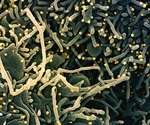

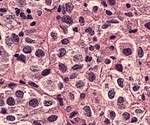



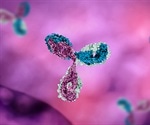

_db18a1e0805b4251a5e571357283fb21-150x125.jpg)

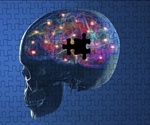
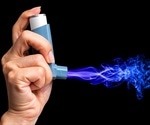

_Chronic_granulomatous_inflammation_-_Komsan_Loonprom_fea37e8c42be4ab7bdc8c06c21bcc289-150x125.jpg)


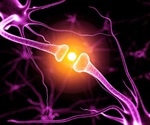

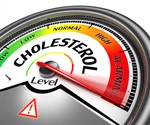
































No hay comentarios:
Publicar un comentario